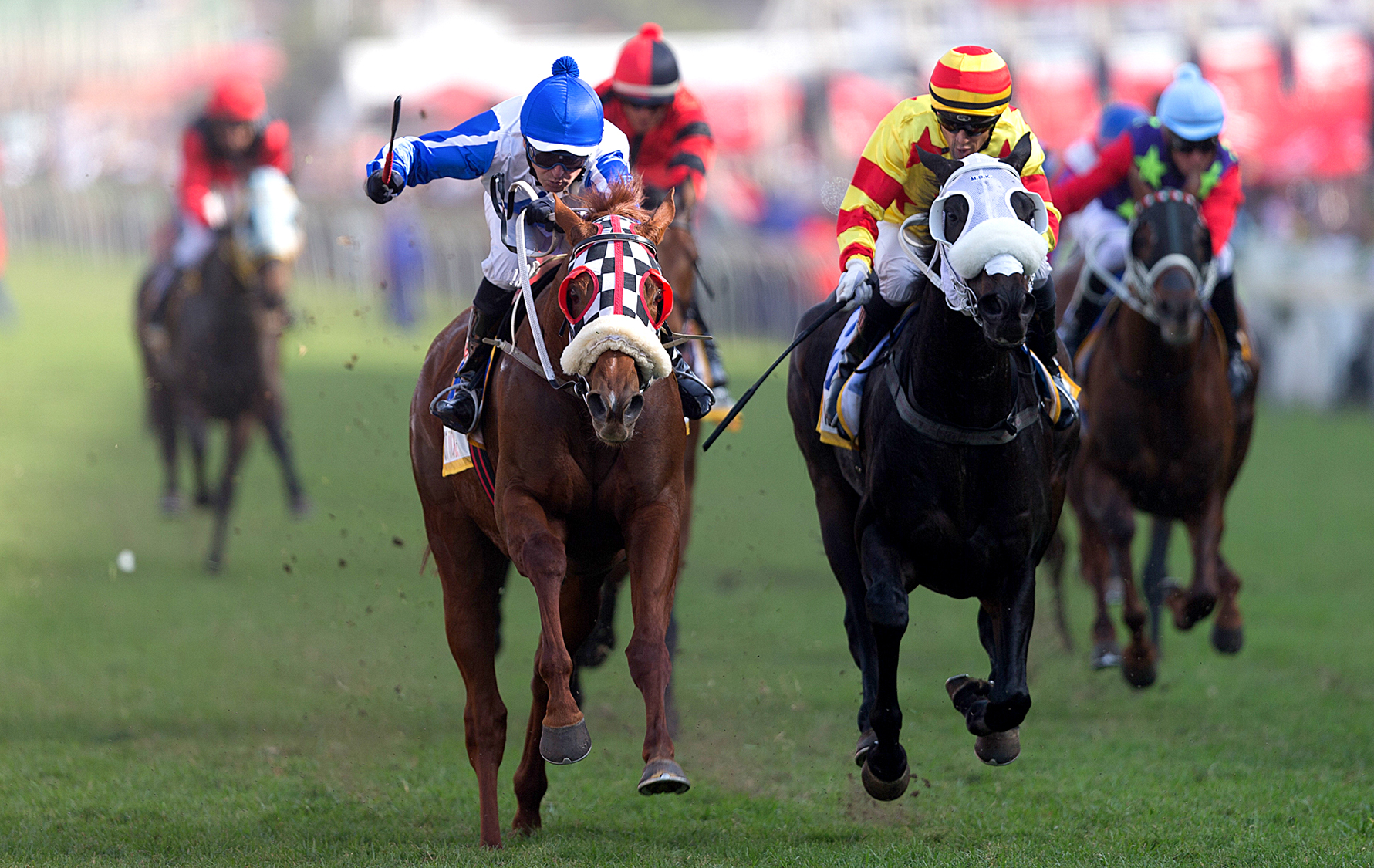The National Council of SPCAs (NSPCA) has called for urgent reforms to horse racing in South Africa, saying that animal welfare must be placed above commercial interests.
This follows a meeting with the National Horseracing Authority (NHA) in which the regulator acknowledged welfare concerns but, according to the NSPCA, shifted responsibility for proving those concerns back onto the animal welfare body.
The meeting was part of the NSPCA’s #ReinInThePain campaign, launched in July to draw attention to the welfare of racehorses. The campaign calls for an end to what it terms “harmful and outdated practices” including tongue-ties, excessive whip use, and the racing of underage horses.
“The welfare of horses is not negotiable,” said Dr Bryce Marock, Consulting Veterinarian for the NSPCA. “South Africa’s animal protection laws are clear and they must be upheld — not just within racing, but across all industries that use animals.”
The NSPCA expressed concern that a regulatory body “so reliant on the success of the commercial side of horse racing” might not be able to enforce welfare standards objectively. The organisation also criticised what it sees as a pattern of deflection, with the NHA requesting more research before taking action.
“Calling for ‘more research’ is a diversion from the core issue: meaningful enforcement and reform. The focus must now be on action, not justification,” the NSPCA statement said.
Another flashpoint was enforcement. The NSPCA said it was unacceptable that, to its knowledge, no criminal cases had been opened against jockeys or trainers for overuse of the crop or other violations of the Animals Protection Act.
“Internal processes cannot take precedence over national legislation,” the NSPCA said, adding that asking the NSPCA to initiate criminal cases was an abdication of the NHA’s responsibility.
Durban July and beyond
The campaign gained national attention when actress and activist Nirvana Nokwe appeared at the Durban July horse-racing event wearing a stark costume symbolising the fate of discarded racehorses.
/file/dailymaverick/wp-content/uploads/2025/07/Actress-and-activist-Nirvana-Nokwe-dressed-at-the-Durban-July-NSPCA-.jpg)
“This isn’t just about what happens on race day,” Nokwe said at the time. “It’s about what we don’t see — the tongue-ties, the brutal whipping, the strained tendons, the fractured legs, the bleeding lungs. Fashion can make a statement, and this one says: It’s time to change.”
The NSPCA argues that thousands of Thoroughbreds are bred annually for racing but that only a fraction ever make it to the top tracks, with many disappearing from view once they can no longer compete. It claims that some end up in slaughterhouses or the informal “bush racing” circuit, where welfare oversight is minimal.
The NSPCA has called this pipeline “a welfare black hole” and says it has documented severe cases where ex-racehorses had to be euthanised after being found in poor condition.
Industry response
Industry representatives, however, argue that many of the reforms demanded are already part of the sport’s regulatory framework. In an email to Daily Maverick, journalist and industry insider Robyn Louw said the NHA rule book already prohibited performance-enhancing drugs, mandated that therapeutic medications be cleared from a horse’s system on race day and routinely tested winners and random runners after races. Positive tests were published and offenders penalised.
Tongue-ties, she said, were used only on horses that suffered from soft-palate displacement, a condition that could block the airway during a race and endanger both horse and rider.
“Tongue ties are checked by on-course vets before the horses run and are removed immediately after the race,” Louw wrote.
“Should the NSPCA have other viable alternatives for treating soft-palate displacement, I am sure the racing industry at large would be grateful to hear of them.”
Whips were still in use, she agreed, but were limited to a maximum of 12 strikes per race, with strict monitoring and penalties for overuse. Only padded “Pro Cush” whips with no solid core were permitted.
/file/dailymaverick/wp-content/uploads/2025/07/A-bush-race-when-things-go-wrong-Don-Pinnock-copy.jpg)
/file/dailymaverick/wp-content/uploads/2025/07/Pampered-when-they-perform-rejected-when-they-dont-Don-Pinnock-copy.jpg)
/file/dailymaverick/wp-content/uploads/2025/07/Out-of-the-starting-gate-at-Kelilworth-Reace-Course-Don-Pinnock-copy.jpg)
She also pointed to mandatory microchipping, retirement forms to record new owners and ongoing reviews of rules and testing protocols as evidence that welfare was taken seriously.
Louw criticised claims that thousands of foals added to an ever-growing population, saying that the Thoroughbred population was in fact at an all-time low, with racing struggling to fill fields.
She also rejected suggestions that horses were casually discarded after they stopped winning: “A good number retire without ever having troubled the racecourse photographer. The vast majority of horses in racing do nothing but cost money, and lots of it. Even horses that earn big race-win or place cheques rarely get close to paying for themselves.”
Points of disagreement
The sharpest divide lies in whether current measures are adequate. The NSPCA argues that self-regulation has failed and that stricter penalties and legislative enforcement are needed. It wants a total ban on tongue-ties, the phasing out of whips and a ban on racing horses before they are skeletally mature.
Louw, in turn, challenged the NSPCA’s focus on racing while “worse atrocities” occur in other equestrian disciplines, suggesting that racing is an easier target for public campaigns.
The NHA has committed to including the NSPCA in its next Rules Committee consultation process, allowing the organisation to present its proposals formally. The NSPCA welcomed the invitation but said its position remained firm: stricter penalties must be enforced, harmful devices must be banned, and welfare must come first.
Whether that change comes through voluntary reform, public pressure, or legislative action may determine the future of Thoroughbred racing in South Africa. DM
Read our previous series:
(Part 1): Odds against the Sport of Kings — the last stand for Thoroughbred horses
(Part 2): From rock stars to obscurity — searching for lost Thoroughbreds
(Part 3): The grim end of the line for ‘reject’ Thoroughbreds





 Karl Neisius riding Hot Ticket (left) wins the 3000m Grade 2 Nokia Gold Vase during at the 2014 Vodacom Durban July races at Greyville Racecourse on 5 July 2014 in Durban, South Africa. (Photo: Neville Hopwood / Getty Images)
Karl Neisius riding Hot Ticket (left) wins the 3000m Grade 2 Nokia Gold Vase during at the 2014 Vodacom Durban July races at Greyville Racecourse on 5 July 2014 in Durban, South Africa. (Photo: Neville Hopwood / Getty Images)